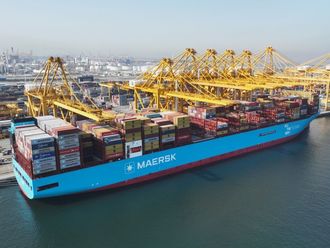Q: How should an investor go about choosing mutual funds as part of a portfolio?
A: Mutual funds are becoming an increasingly popular investment vehicle in the UAE.
Broadly speaking, mutual funds pool money from a number of clients to make a collective investment. The funds are managed by a professional or a financial institution and are invested across a wide range of stocks.
People feel comfortable about investment in mutual funds because they diversify their portfolio in order to minimise the risk. Investments by mutual funds typically include a basket of stocks or sectors, so that poor performance in any one area does not impact the investor too heavily.
According to Zawya Mutual Funds Monitor research, the mutual fund industry in the GCC is estimated to grow to $160 billion by 2010.
The market expansion in the region is being match-ed by increasing sophistication of the mutual fund schemes, so the number of products available has increased dramatically in a short period of time.
So how do you decide which one is the right fund for you?
It's important to start by asking yourself what your investment goals are. If you're looking for a fast return, then mutual funds might not be for you. Generally speaking, long-term investors fare better with mutual funds, so you need to have a sense of how long you plan to invest for and what your financial goals are.
How you intend to use the money is important, because funds pay back to investors in different ways. Broadly speaking, there are funds which provide income - such as dividends from shares - and funds which grow the principle investment, to provide a final payment when the trust is liquidated.
Parameters
Then you need to set the parameters of how you want your money to be used. Once your money is placed in a mutual fund, decisions around how it is spent sit with the fund manager, and most funds reserve the right to change according to movement in the market.
A range of Islamic mutual funds is now available within the UAE, as well as a number of "ethical funds", so you can find investment opportunities that fit with your personal beliefs.
In terms of deciding what to look for in a specific fund, one of the most important factors is performance over time.
A fund that has successfully weathered difficult economic times is more likely to provide the kind of return you require in the long-run.
In addition, consistent portfolio management is important. If you're looking for stability, a fund that sticks with specific investment criteria is more likely to benefit you than one that tries to follow current trends in the market.
As with any investment, it's worth remembering that reduced risk doesn't mean risk-free. During the stock market falls of 2006, many mutual funds were as heavily exposed to loss as individual investors, suggesting that fund managers had tried too hard to follow the market.
Finding a fund with a consistent management style and solid performance record could go some way towards protecting you from similar problems in the future.
- The writer is director of sales at Nexus, a leading regional financial adviser. The opinions expressed above are the writer's and don't necessarily represent the views of Gulf News.
Please send yourquestions to advice@gulfnews.com.












